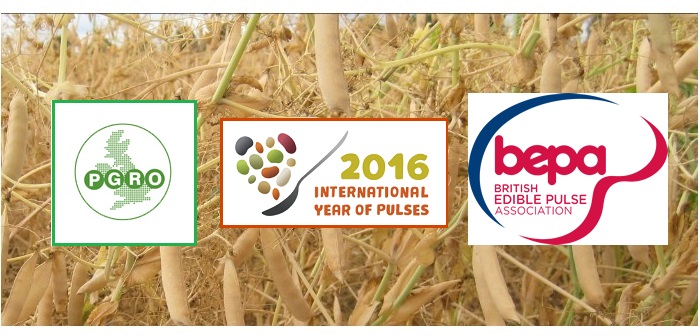The UK pulse harvest looks to be heading for a yield reduction of about 20% on last year’s crop, according to the latest estimates from PGRO.
“Early indications for the pulse harvest are in line with the early cereal and oilseed rape crops, with 2016 looking like a significantly lower yielding year than 2015,” said PGRO chief executive, Roger Vickers. “The 2015 pulse harvest was significantly above average, however.”
Reporting that growers are possibly anticipating around 20% less than the norm in 2016, PGRO blamed the generally cold and wet spring, broken by a short heatwave in early July before returning to cool and damp weather, for the reduced yields.
Looking specifically at feed sector implications, the PGRO report notes that early winter bean samples have often been poor with small grain sizes, shrivelled skin texture and surface staining, making them fit only for feed use.
“However, as always, there are also reports of good yield and quality,” added PGRO. “Growers who remained on top of disease have generally fared better with more visually impressive samples and yields averaging around 5t/ha.
“With the spring bean harvest barely underway it is far too early to comment on total availability or to assess UK quality from 2016, although very early crops are reported at around 5t/ha with small grains.”
Looking at the global harvest picture for feed beans, BEPA reports “promising indications and optimism” for a large crop in South Australia and Victoria, while Baltic origin bean crops are said to be in “good heart” and of good quality, putting them in direct competition with the UK and Australia for the export market. France, meanwhile, continues to report poor quality beans.
“Feed beans continue to be valued at circa £145-150/t ex farm keeping them in line with the base feed wheat price,” said BEPA. “This is likely to come under pressure as growers seek to offload early crops to feed, but there has been little trading activity ahead of the main harvest.
“Demand from the UK feed industry remains enthusiastic, with a significant amount of their requirement already having been covered as they aim to ensure continuity of supply.”
PGRO is the non-statutory levy body which promotes and carries out research and development in peas and beans.
BEPA is the trade association representing the processors and users of British-produced pulse (dried pea and bean) crops.




